Radio controlled yachts: a world of miniature aquatic adventures, from tranquil lake sails to thrilling ocean races. Imagine meticulously crafted vessels, responding to your every command, gliding across the water with precision and grace. This exploration dives into the fascinating realm of RC yachts, uncovering the history, construction, and competitive spirit that fuels this captivating hobby.
These miniature marvels come in various sizes and types, from sleek motor yachts to agile sailboats. Building, racing, and maintaining them demands a blend of craftsmanship, technical knowledge, and a touch of competitive spirit. This comprehensive guide provides an engaging overview, ensuring you’re well-equipped to embark on your RC yacht journey, whether you’re a seasoned pro or a curious beginner.
Radio Controlled Yachts: An Overview
Radio controlled yachts (RC yachts) offer a fascinating blend of precision engineering, exhilarating competition, and satisfying craftsmanship. These miniature vessels, powered by intricate electronics and often resembling full-sized yachts, provide a compelling hobby for enthusiasts of all skill levels.
Overview of Radio Controlled Yachts

RC yachts encompass a diverse range of models, each designed for specific purposes. Key features include detailed hull designs, often resembling their full-scale counterparts, and sophisticated control systems. Types include sailboats, motor yachts, and catamarans, each with their own nuances in performance and construction.
The history of RC yacht racing is marked by continuous innovation. From early, rudimentary systems to advanced electronics and sophisticated designs, the evolution reflects the passion and dedication of enthusiasts. Modern racing utilizes intricate control systems and specialized materials, resulting in high-performance vessels.
Sizes and Scales of RC Yachts

RC yachts are available in a variety of sizes and scales, catering to diverse preferences and budgets. Smaller models often suit beginners, while larger models are prized by experienced racers. The scale, from 1/10 to 1/1000, significantly impacts the complexity of construction and control.
Comparison of Common Types of RC Yachts
| Type | Size Range | Main Features | Common Uses |
|---|---|---|---|
| Sailboat | 1/10 – 1/35 | Sail design, wind responsiveness, maneuverability | Racing, cruising, display |
| Motor Yacht | 1/15 – 1/50 | Engine power, speed, stability | Cruising, speed competitions |
| Catamaran | 1/15 – 1/40 | High stability, maneuverability, speed | Racing, recreational cruising |
Building and Construction, Radio controlled yachts
RC yacht construction utilizes a variety of materials, from high-quality plastics to sophisticated composites. Different construction techniques cater to specific model types and performance goals. Careful hull design is paramount for optimal stability and speed. Rigging systems vary depending on the type of yacht, influencing sailing performance and responsiveness.
Electronics and Control Systems
RC yacht control systems leverage radio signals for precise maneuverability. Components include radio transmitters, receivers, and servo motors. Sensors play a critical role in enhancing performance, providing real-time data about speed, position, and environmental conditions. Advanced systems can even adjust sail angles and rudder positions automatically.
Racing and Competition
RC yacht racing involves various formats, each with its own set of rules. Wind conditions and course design significantly influence racing outcomes. Classes categorize yachts by size and type, ensuring fair competition. Success in racing requires a combination of technical skill, strategic thinking, and understanding of the nuances of the craft.
Maintenance and Repair

Regular maintenance is essential for optimal performance and longevity of RC yachts. Maintenance tasks include cleaning, lubrication, and component inspection. Common problems and solutions are crucial for troubleshooting.
| Task | Tools Needed | Frequency | Description |
|---|---|---|---|
| Hull Cleaning | Soft brushes, water | Weekly | Remove dirt and debris. |
| Servo Maintenance | Screwdrivers, lubrication | Monthly | Inspect and lubricate servo mechanisms. |
Accessories and Enhancements

Numerous accessories enhance RC yacht performance and customization. Sail modifications, such as advanced sail designs and materials, can improve speed and efficiency.
Resources and Communities
Online resources and forums provide valuable information and support for RC yacht enthusiasts. Engaging with communities fosters knowledge sharing and collaborative learning. Local clubs offer opportunities to meet fellow enthusiasts and participate in events.
Safety and Considerations
Safe operation of RC yachts requires careful handling and storage. Understanding potential hazards, like collisions and equipment malfunctions, is essential for avoiding accidents. Beginner-specific safety protocols ensure a safe and enjoyable experience.
Future Trends
Future RC yacht technology may include greater automation, incorporating AI and machine learning to optimize performance. Innovative materials and designs promise to push the boundaries of performance and aesthetics.
Final Wrap-Up
From the intricate designs to the thrilling races, radio controlled yachts offer a captivating blend of craftsmanship, technology, and competition. We’ve explored the key elements, from building and electronics to racing and maintenance, and provided a glimpse into the vibrant community surrounding this hobby. Whether you’re fascinated by the technical aspects or drawn to the competitive spirit, RC yachts offer something for everyone.
So, are you ready to set sail?
Clarifying Questions: Radio Controlled Yachts
What are the common materials used for building RC yachts?
Common materials include balsa wood, plywood, fiberglass, and composites. The choice often depends on the desired scale, budget, and intended use.
What are some common problems encountered during RC yacht operation, and how can they be solved?
Common problems include steering issues, radio interference, and motor malfunctions. Troubleshooting often involves checking connections, adjusting settings, or replacing components.
What are the safety precautions for operating RC yachts?
Always prioritize safety! Keep a safe distance from other vessels, be mindful of wind conditions, and use appropriate safety gear. Be aware of potential hazards like rocks, obstructions, and changing weather conditions.
What are some of the most popular online resources for RC yacht enthusiasts?
Many online forums and communities cater to RC yacht enthusiasts. These platforms provide a valuable space to share experiences, ask questions, and discover new ideas.



